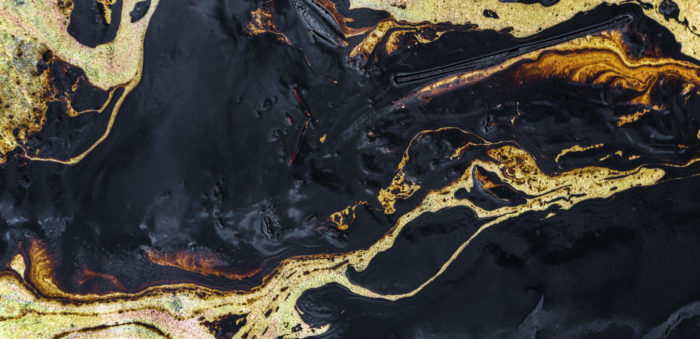Oil pollution incidents can cause expensive claims, where clean-up costs, fines and damages to affected third parties can amount to several million dollars. However, the majority of oil pollution claims do not involve tankers or oil cargoes, as pollution caused by the release of bunker fuel is more common, North P&I Club informs.
As Alvin Foster reports, the environmental affect of of spilled oil can be more important than that of a crude oil cargo. Crude’s can evaporate, while on the other hand, residual fuels will not, being more difficult to clean.
[smlsubform prepend=”GET THE SAFETY4SEA IN YOUR INBOX!” showname=false emailtxt=”” emailholder=”Enter your email address” showsubmit=true submittxt=”Submit” jsthanks=false thankyou=”Thank you for subscribing to our mailing list”]
Fuel oil can be released in the sea if a tank is compromised. This may be due to a collision of any kind. Nevertheless, a number of bunker spills take place during bunkering operations and the vast majority of these spills could have been avoided.
Moreover, bunker spills also happen when a fuel tank overflows as it is in the bunkering process. A vessel’s storage tanks are designed to overflow into an overflow tank; if the overflow tank fills completely, the fuel will be released into the water. Overflow tanks can also fill up when the bunker manifold is over-pressurised and the system’s safety valve relieves the pressure into the overflow tank.
When someone is examining what caused a bunker spill, many common factors can be found, some of which are:
- Not acting on overflow alarms: In some cases, overflow alarms have activated but the crew did not take immediate action.
- Overflow alarms not working: As there is no requirement to fit alarms to the overflow system, crew vigilance and proper monitoring of the overflow tank contents is crucial.
- Failure to monitor bunker tank levels: Crewmembers should monitor tank levels throughout bunkering, being extremely vigilant when tanks are almost full and changing over to new tanks.
- Ineffective watch at the bunker station: The bunker station should be manned during the bunkering operation.
- Communication between bunker barge and receiving vessel: If a problem happens that requires an emergency stop of the transfer, the two vessels must be able to communicate immediately.
- Not following procedures or the bunker checklist: Shipowners should make sure that the checklist and relevant procedures are sensible and workable.
- Supplier exceeding maximum pressure or flow rate: Before the bunkering operation, the supplying and receiving vessel must agree a maximum transfer rate and a maximum pumping pressure.
In order to avoid the above, a sensible but solid maintenance program is needed to prevent the bunker system from failing.

































































